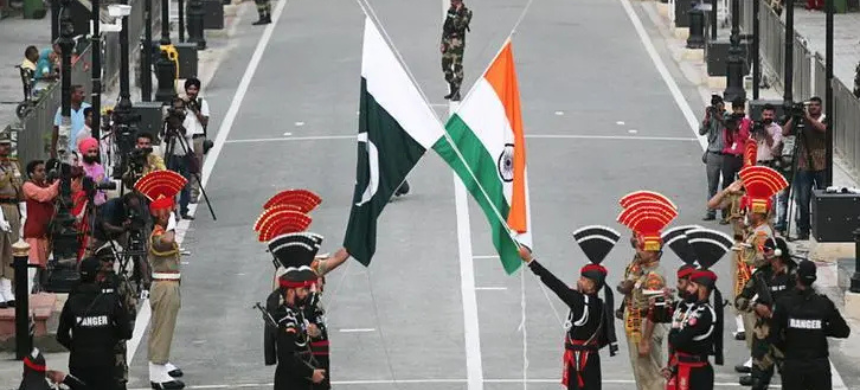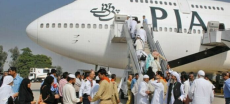Khawaja Asif Warns of Imminent Indian Military Action Amid Rising Indo-Pak Tensions After Pahalgam Attack
ISLAMABAD – April 29, 2025:
Pakistan’s Defence Minister Khawaja Muhammad Asif has warned that a military incursion by India appears imminent following a deadly attack in the Pahalgam region of Indian-occupied Jammu and Kashmir. The attack, which killed 26 tourists, has severely strained relations between the two nuclear-armed nations.
Speaking to Reuters, Asif stated, “We have reinforced our forces because it is something which is imminent now. In such a situation, strategic decisions have to be taken, and they have been taken.” While he refrained from revealing specific intelligence, he confirmed that Pakistan’s military had briefed the government on the high risk of aggression from India.
Clouds of War Loom Over South Asia
During an appearance on Samaa TV’s “Red Line with Talat,” Asif warned that “the clouds of war are gathering” and predicted that hostilities could erupt within the next two to four days. Stressing Pakistan’s preparedness, he said the country would retaliate with full force if attacked and would only consider using nuclear weapons if its existence was under direct threat.
Asif strongly rejected India’s allegations linking Pakistan to the Pahalgam attack, calling it a “fabricated drama” aimed at boosting Prime Minister Narendra Modi’s political standing. He echoed the Prime Minister’s call for an international commission—preferably under the UN or involving regional stakeholders—to independently investigate the incident.
Read More: Government Issues Cyberattack Warning Amid Growing Tensions with India
“The Pahalgam incident is a complete lie, just like nothing substantial came out of Pulwama,” Asif asserted, reaffirming Pakistan’s commitment to a transparent and impartial inquiry.
Diplomatic Fallout: India Suspends Indus Waters Treaty, Expels Pakistanis
In a sweeping retaliation, India announced the suspension of the Indus Waters Treaty, a landmark agreement signed in 1960 under the World Bank’s mediation. This move, which marks a historic escalation, was declared following a high-level meeting chaired by Prime Minister Modi.
Additionally, India has:
- Ordered all Pakistani nationals to leave within 48 hours.
- Shut down the Attari check post, a key border crossing.
- Suspended all visa services, including SAARC-related permits.
- Declared several Pakistani diplomats persona non grata.
Indian officials have claimed the Pahalgam attack was “linked to cross-border elements” and accused Pakistan of sponsoring terrorism to destabilize the region post-elections in Jammu & Kashmir.
Pakistan Responds: Closes Wagah Border, Suspends Bilateral Ties
In response, Pakistan’s National Security Committee (NSC), chaired by Prime Minister Shehbaz Sharif, convened an emergency session. The NSC announced the suspension of all bilateral agreements, including the Simla Accord—a foundational framework for Indo-Pak peace established in 1972.
Key decisions made by Pakistan include:
- Closure of the Wagah border (effective April 30).
- Expulsion of Indian citizens from Pakistan, except Sikh pilgrims.
- Suspension of visas for Indian nationals, including SAARC.
- Declaring Indian defense, naval, and air attachés persona non grata.
- Closure of airspace to Indian aircraft.
- Suspension of all trade activities, including those via third parties.
Pakistan also rejected India’s unilateral suspension of the Indus Waters Treaty, calling it a breach of international law and a potential act of war. “Water is a vital national interest,” the NSC said, vowing to defend its rights on global forums.
Reaffirming the Two-Nation Theory
In a rare ideological assertion, the NSC stated that India’s recent actions reaffirm the Two-Nation Theory, which justified the creation of Pakistan in 1947. “India’s aggression and discriminatory policies have once again proven the need for a separate homeland for Muslims,” the committee declared.
International Reactions
Countries including Türkiye, China, and the United States have urged de-escalation:
- Turkish President Erdoğan called for an immediate reduction in tensions and reiterated support for Palestinian rights in the Middle East.
- China reaffirmed support for Pakistan and stressed the importance of an impartial investigation into the Pahalgam attack.
- The U.S. urged both sides to pursue a responsible resolution and confirmed it was in contact with both New Delhi and Islamabad.











